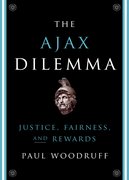What is the history of science for, and who should write it?
By Frank James
I have been pondering these questions recently in the course of researching and writing the biographical memoir for the British Academy of the distinguished and influential historians of science Rupert Hall (1920-2009) and his wife Marie Boas Hall (1919-2009). Before the 1939-1945 war history of science was practiced almost exclusively by scientists of one form or another such as Charles Singer (1876-1960) in England and George Sarton (1884–1956) in the United States.













